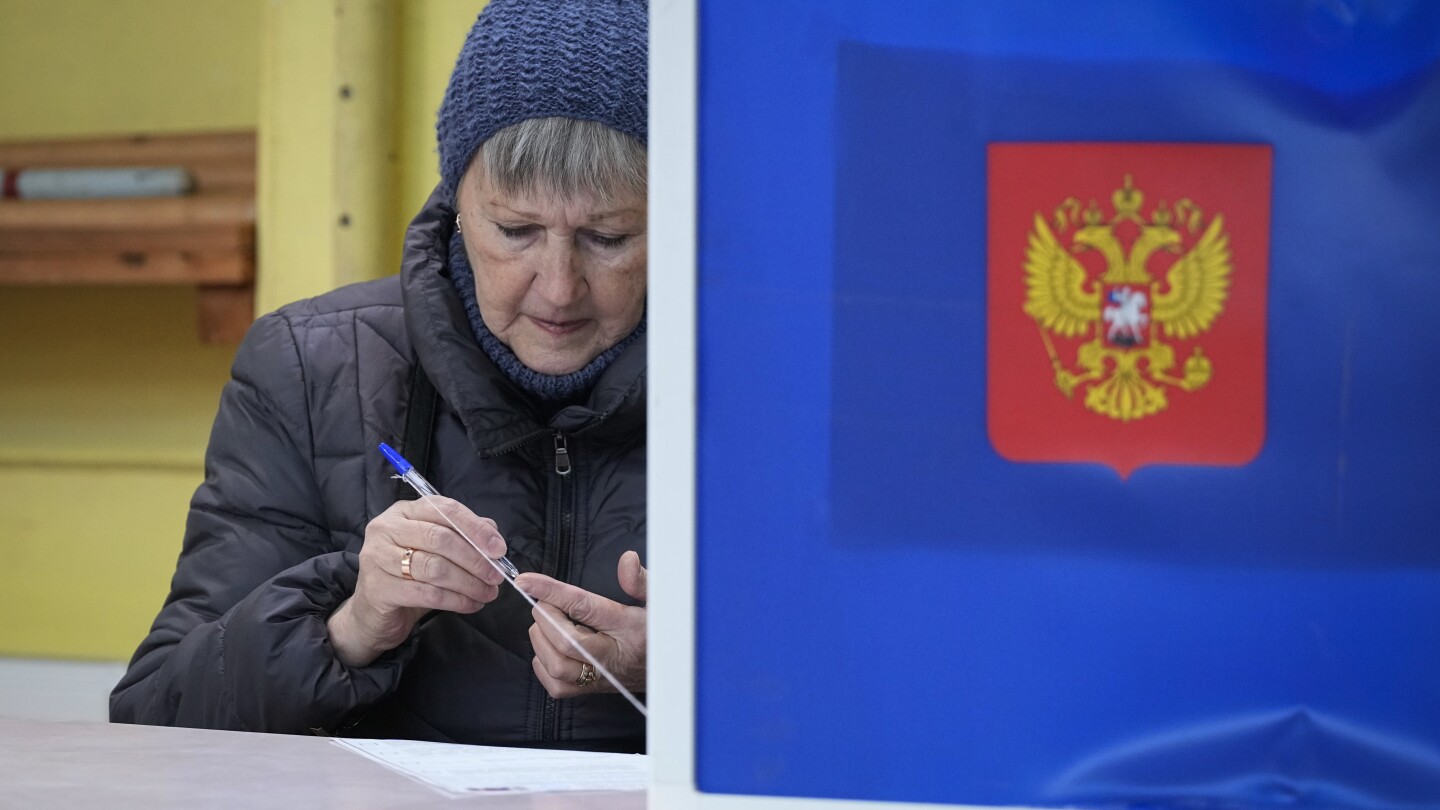Voters across Russia cast ballots Saturday on the second day of an election set to formalize six more years of power for President Vladimir Putin, who faces no serious challengers after crushing political dissent over his nearly 25 years of rule.
The election comes against the backdrop of a ruthless crackdown that has stifled independent media and prominent rights groups. Putin’s fiercest political foe, Alexei Navalny, died in an Arctic prison in February, and other critics are either in jail or in exile.
The 71-year-old Putin faces three token rivals from Kremlin-friendly parties, who have refrained from any criticism of him or his invasion of Ukraine. Putin has cast his war in Ukraine, now in its third year, as an existential battle against the U.S. and other Western powers bent on destroying Russia.
Russia’s wartime economy has proven to be resilient, expanding despite bruising Western sanctions. The Russian defense industry has served as a key growth engine, working around the clock to churn out missiles, tanks and ammunition.
Russia’s opposition movement has urged those unhappy with Putin or the war to show up at the polls at noon Sunday, the final day of voting, as a form of protest. The strategy was endorsed by Navalny not long before his death.
Voting is taking place at polling stations across Russia’s 11 time zones, in illegally annexed regions of Ukraine, and online.
In the run-up to the vote, Putin boasted about battlefield successes in Ukraine, where the Russian troops have recently made incremental gains relying on their edge in firepower. Ukraine, meanwhile, has fought back by stepping up attacks on Russia’s border regions and launching drone strikes deep inside the country.
On Friday, Putin described the week’s cross-border shelling and incursions by Ukrainian forces as an attempt by Ukraine to frighten Russians and derail the vote. He vowed that the attacks “won’t be left unpunished.”
Officials said voting was proceeding in an orderly fashion. But despite tight controls, at least half a dozen cases of vandalism at polling stations have been reported, including a firebombing and several people pouring green liquid into ballot boxes. The latter was an apparent homage to Navalny, who in 2017 was attacked by an assailant splashing green disinfectant in his face.
Western leaders have derided the vote as a travesty of democracy.
European Council President Charles Michel mockingly congratulated Putin Friday on “his landslide victory” in an election that was technically still underway. “No opposition. No freedom. No choice,” he wrote on the social media platform X.
Beyond the lack of options for voters, the possibilities for independent monitoring are very limited. No significant international observers were present. Only registered, Kremlin-approved candidates — or state-backed advisory bodies — can assign observers to polling stations, decreasing the likelihood of independent watchdogs.


